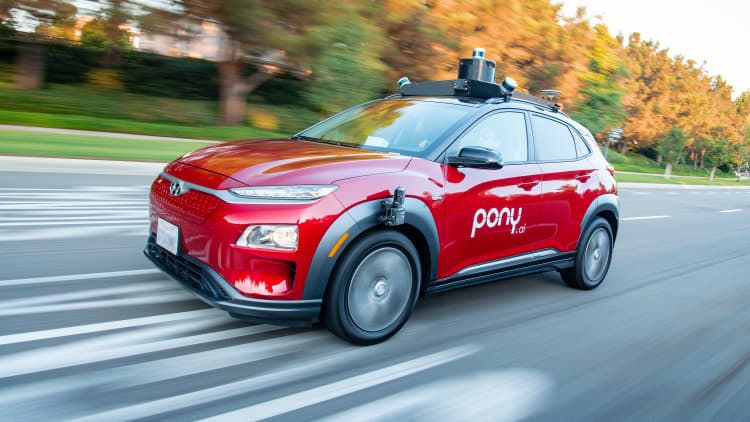Nandini Roy Choudhury, writer
Brief news
- Chinese companies are advancing in autonomous vehicle development, with the government issuing 16,000 test permits and opening highways for testing.
- Several Chinese firms have tested their technology in the U.S., accumulating over 1.6 million test miles.
- U.S. concerns over national security have led to proposed bans on Chinese connected vehicles,causing manufacturers to retreat from the U.S. market.
Detailed news
Companies based in China are making significant strides in the development of autonomous cars. The Chinese government made the announcement in August that it had awarded 16,000 test permits for driverless cars and opened up around 20,000 miles of highways across the country for the purpose of testing autonomous vehicles.
However, Chinese businesses that manufacture autonomous vehicles have also been discreetly testing their technology on roadways in the United States.
At the same time when numerous autonomous vehicle companies in the United States have operations in northern California, Baidu, Didi, WeRide, Pony.ai, and AutoX all have offices there. According to information provided by the California Department of Motor Vehicles, which is in charge of awarding test permits to businesses that intend to test autonomous vehicles in the state, these five organizations have totaled more than 1.6 million test miles on the roads of California between the years 2017 and 2023. According to the DMV’s website, Didi is the sole company among these five that no longer maintains an active AV testing permit.
Michael Dunne, the CEO and originator of Dunne Insights, stated to CNBC that China had “carte blanche” when it came to testing autonomous vehicles in California.
“They acknowledged that Silicon Valley was the birthplace of autonomous vehicle technology,” Dunne stated. “They recruited a significant number of individuals who had previously worked for Apple, Tesla, Waymo, or Cruise, and they declared, ‘Let’s recruit the world’s best talent.'” We are in possession of funding and are committed to establishing a company of the highest caliber. Take that knowledge, return to China, and apply it to our substantial domestic market, and we will be off and running.
However, the U.S. government has recently proposed a prohibition on Chinese connected vehicles due to concerns regarding the significant amount of data being collected by these vehicles and the potential implications for national security.
Missy Cummings, a former senior safety advisor to the National Highway Traffic Safety Administration, stated to CNBC that the prohibition was a positive beginning.
“These vehicles are essentially surveillance machines,” stated Cummings. “They have the ability to repeatedly carry out the same pattern every day, under the guise of testing, as they have multiple cameras that observe everything from a variety of perspectives.”
In addition, Cummings stated that the vehicles collect “critical information that may not appear confidential, but is certainly sensitive, regarding the patterns of life, the vehicles that enter and exit specific installations, and the actual operation of supply chains.”
CNBC was also informed by Representative Marc Veasey of Texas that he is also apprehensive. He and three other representatives wrote a letter to the Biden administration last year, outlining their concerns that Chinese autonomous vehicles operating in the United States could pose a threat to national security and competitiveness.
Chinese autonomous car manufacturers have been retreating from the United States amid the heightened scrutiny.
Dunne stated to CNBC that there were over 14 companies testing their vehicles in California, Nevada, and Utah during the height of Chinese AV testing. However, he now perceives “very little evidence or intention” among Chinese autonomous vehicle manufacturers to introduce their products in the United States.
He stated, “Of course, there is a recognition.” “We thoroughly enjoyed our time in the United States.” We gained a great deal of knowledge. If we continue on this path, it is possible that we may have the resources to develop our own innovations within China.
Source : CNBC News



